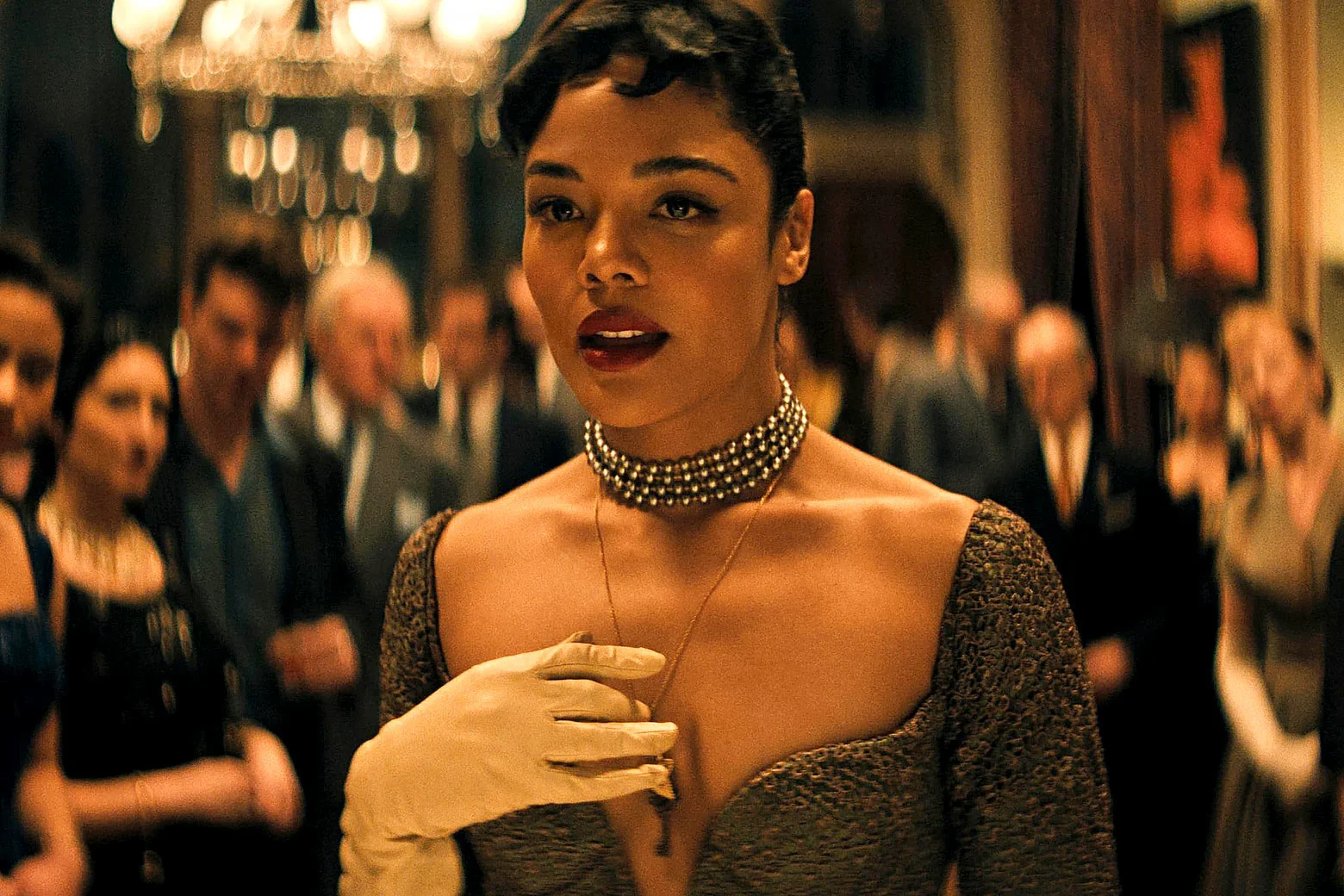Copyright Slate

This article contains spoilers for Hedda. In Nia DaCosta’s new film version of the famed Henrik Ibsen play Hedda Gabler, the titular character constantly toys with the key hanging around her neck, which unlocks a case of pistols she inherited from her father. This seemingly foreshadows the well-known ending to the 1891 play, in which Hedda takes her own life. But the Candyman director’s unique spin on the story of one of literature’s most famous, well-developed anxiety-ridden female protagonists—here mononymously titled Hedda—promises a much different finale from what has been canonized as a masterpiece of literary realism. A multitude of changes reshape the tale of a woman stricken with severe ennui, trapped in a life she doesn’t want. But it’s the ending of Hedda, now streaming on Prime Video after a theatrical release, that truly sets this adaptation apart, fundamentally altering our understanding of the story, for better or for worse. Ibsen’s play follows Hedda Tesman, née Gabler, who has just returned home from her honeymoon with the young, ambitious academic George Tesman. It becomes clear, however, that Hedda doesn’t love George. Their complex dynamic—Hedda’s maddening dissatisfaction with her life; George’s constant, yet failing attempts to win her over—is further complicated by the arrival of Ejlert Løvborg, George’s professional rival vying for the same university professorship and a recovering alcoholic. The twist: Hedda and Løvborg were once, unbeknownst to all around them, lovers. Thus established is something of a comedy of errors, if it weren’t laced with depression and a promising whiff of future tragedy: Hedda is still in love with Løvborg, who claims to be in love with Thea Elvsted, a prior schoolmate of Hedda’s and a married woman who initially hired Løvborg as a tutor for her children. More complicated still: Løvborg’s academic prowess is promised in a manuscript of his secret new studies, but his construction and protection of his work is directly tied to his sobriety, which is owed to Thea’s influence, making Hedda jealous of the closeness between her former schoolmate and her former lover. The most obvious change in DaCosta’s Hedda, apart from casting the Afro-Latina actress Tessa Thompson in the title role, takes the form of a gender swap, adding on an extra LGBTQ+ layer to the story. Here, Ejlert Løvborg becomes Eileen Løvborg, played by the indomitable German actress Nina Hoss. This Løvborg is a formidable academic who is looked down upon because of her alcoholism and the fact that she is a woman in a male-dominated field. The gender change makes all of the rough edges and questions around Hedda and Løvborg’s relationship more concrete. While Hedda’s reasons for pulling away from Løvborg in the source text are debatable—it’s unclear what Hedda was so afraid of when it came to committing to Ejlert Løvborg—it makes sense that two women in love in the 1950s, when the movie is set, wouldn’t be so willing to shout it from the rooftops, or that there would be increased fear of committing to each other publicly. Additionally, the determination of DaCosta’s Løvborg to secure that professorship is provided fresh urgency, given her uphill battles as a woman entering a boys’ club; despite her promising talents, and her assurances that her new manuscript (here, seemingly about sexual kinks) would revolutionize the field, she still must fight to be seen as an equal. Fittingly, when a jealous Hedda eventually manipulates Løvborg into drinking, the justification she gives is that Løvborg has to keep up appearances with her male colleagues, whom she’s trying to impress. If the change to Løvborg’s gender solidifies a more subtle part of Ibsen’s play, as well as Hedda and Løvborg’s backstory, then DaCosta’s other major difference takes something concrete in Ibsen’s version and totally abstracts it. In the original story, Hedda’s hijinks and machinations cause Løvborg to relapse and go on a drunken bender, during which he loses his prized manuscript, which George picks up and leaves at home with Hedda. Hedda winds up burning it, though Løvborg thinks it merely went missing. Løvborg becomes depressed at the thought of losing his life’s work and speaks of suicidal thoughts, which Hedda urges him to explore by giving him one of her prized pistols and wishing he will have a “beautiful death.” Løvborg does wind up killing himself, though not in the “beautiful” way she had hoped; instead, it happens accidentally in a brothel when the gun goes off while in his breast pocket. Shortly thereafter, Hedda shoots herself—perhaps out of guilt, out of fear of another character (Judge Brack) trying to extort her involvement in Løvborg’s death, out of her dissatisfaction with her life overall, or some combination of all three. The new version of Hedda opens with the titular character attempting to drown herself before being called out of the local lake, her pockets laden with stones, a scene suggesting her suicidal intentions from the very beginning. Most of the final acts play out as the Ibsen work does, with Løvborg losing her manuscript and Hedda burning it, then encouraging the academic’s suicidal tendencies by giving her one of the pistols, which accidentally fires when Løvborg gets into a drunken tiff. After narrowly escaping Judge Brack (Nicholas Pinnock), who tries to take advantage of her, and realizing that, as in the play, Thea (Imogen Poots) and George (Tom Bateman) would try to rewrite Løvborg’s work together, Hedda goes to drown herself, like she tried to do in the beginning. But before she puts her head below water, she overhears someone yell that Løvborg has actually survived the gunshot. Our lasting shot is of Hedda’s face, just above water, turning from a disaffected look to a mischievous smile. Will she kill herself like Hedda does in the play? The film ends before we find out. This open-ended conclusion rewrites the whole arc of the story, depending on your interpretation. It’s easy to believe that this version of Hedda would see Løvborg’s survival as an opportunity for something interesting to occur in her life, whether it be love or continued manipulation, thus giving her a reason to keep living. That ending would imbue the tale with a promise of hope. But Hedda Gabler was so remarkable because of its tragic nature and its unwillingness to shy away from the devastations of the confines in which women are held, leading them to fatal malaise. If Hedda had been able to remain her party-loving, toxic self throughout the play, then what reason would she have to seek her own death? But instead she grew weary of single life, and of the expectations that it must at some point end, and consequently trapped herself into an existence she didn’t want. By altering this fact, DaCosta’s movie slides into a different reality—one that is not so occupied with how the business of men puts women on the brink.



